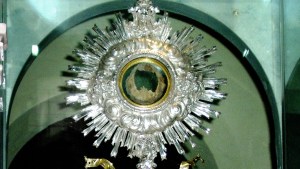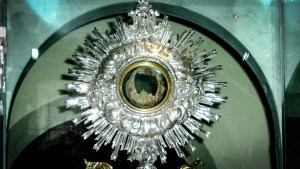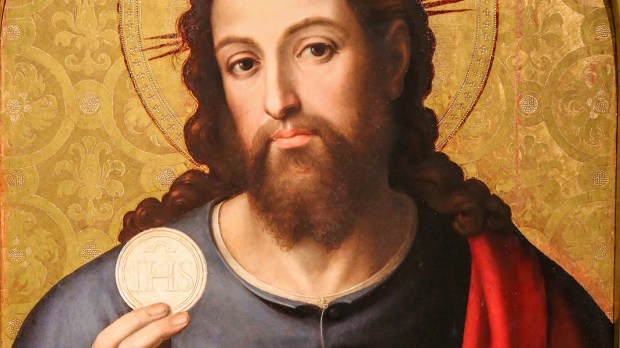In the Catholic Church one of the most important teachings is the belief that Jesus is truly present, body, blood, soul and divinity, under the appearances of bread and wine in the Eucharist. This miraculous presence occurs by the power of God, through the words and actions of the priest at Mass.
While it may appear to some that this teaching is something invented by bishops and popes over the centuries, it is in fact derived from various Bible passages.
For the purposes of this article, we will simply cite a small selection of passages from the New Testament to help show the reader where this teaching finds its primary source. A more lengthy discussion of the sacrament of the Eucharist can be found in the Catechism of the Catholic Church.
1John 6:54-57
Whoever eats my flesh and drinks my blood has eternal life, and I will raise him on the last day. For my flesh is true food, and my blood is true drink. Whoever eats my flesh and drinks my blood remains in me and I in him. Just as the living Father sent me and I have life because of the Father, so also the one who feeds on me will have life because of me.
2Matthew 26:26-28
While they were eating, Jesus took bread, said the blessing, broke it, and giving it to his disciples said, “Take and eat; this is my body.” Then he took a cup, gave thanks, and gave it to them, saying, “Drink from it, all of you, for this is my blood of the covenant, which will be shed on behalf of many for the forgiveness of sins.
31 Corinthians 11:27-29
Therefore whoever eats the bread or drinks the cup of the Lord unworthily will have to answer for the body and blood of the Lord. A person should examine himself, and so eat the bread and drink the cup. For anyone who eats and drinks without discerning the body, eats and drinks judgment on himself.
4Acts 2:42
They devoted themselves to the teaching of the apostles and to the communal life, to the breaking of the bread and to the prayers.
51 Corinthians 10:16
The cup of blessing that we bless, is it not a participation in the blood of Christ? The bread that we break, is it not a participation in the body of Christ?

Read more:
4 Incredible Eucharistic miracles that defy scientific explanation

Read more:
How a Eucharistic miracle is approved by the Church

